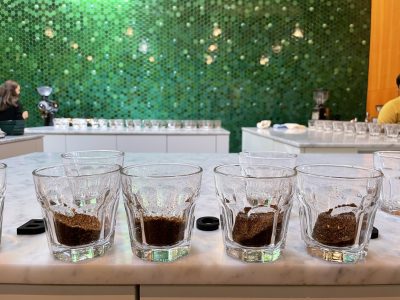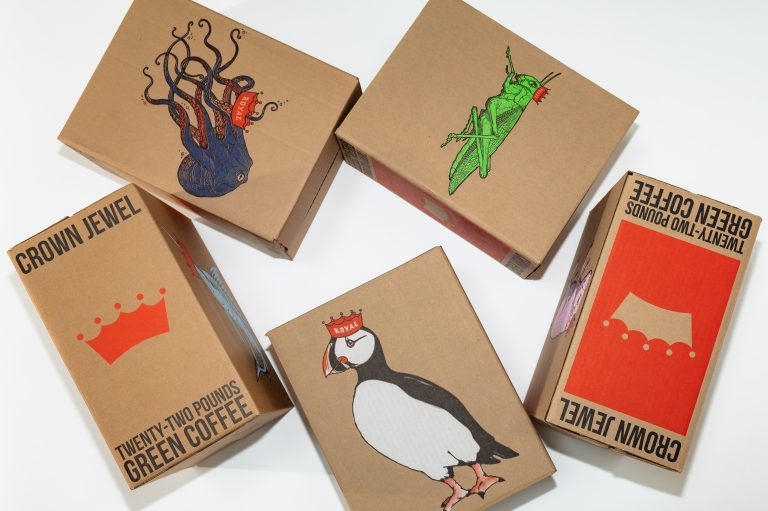Celebrating Women-led Projects in the Heart of Africa: Chris shares his recent trip to Bujumbura and upcountry Burundi.
Disembarking at the airport in Bujumbura, Burundi’s capital city on the shore of Lake Tanganyika is a chaotic and usually sweaty affair, little changed from the last time I visited in 2015. Americans must still purchase visas on arrival (no online option that I could find exists), which requires standing what feels like twenty separate lines and shuffling back and forth between windows to exchange information, passport, and currency with few signs or directions to guide you, all amongst a press of people all moving in every direction.
Clearing this hurdle, I’m thrilled to be met by Jeanine Niyonzima-Aroian on the outside. Jeanine is the founder of JNP Coffee and an absolute icon in specialty circles. There are so many incredible reasons I’m proud and honored to work with her – her convivial nature, her frequent phone calls, and her endless enthusiasm, and support.
A few more reasons I like working with her? Jeanine was born in Burundi – she’s from the country and cares deeply about its people and their wellbeing. She heads a team of women-leaders in her company and is committed to extending that empowerment to the field, where she works towards equitable payment and inclusive projects for coffee-growing communities throughout the country.

Our first stop is at her cupping lab in town, where her quality manager, top cupper, and Q Grader Gilberte Horugavye prepares samples for late-afternoon cupping. Jeanine and I step out to a small courtyard in the back to catch up, when we are startled by a sparking power conduit, which quickly catches fire. I manage to put it out with my apron, and upon returning to the lab we discover the power is out. Apparently, too many hot water towers and grinders were running simultaneously! A kind neighbor allows the team to complete water heating and grinding, and we cup in the dark, making plans to leave the next morning for the countryside, praying an electrician can fix the issue before our return.
This is my first opportunity to travel with Jeanine, which is an experience unlike any I’ve had traveling to visit coffee lands. Our journey takes us through rugged unpaved roads throughout the mountainous terrain, six of us crammed into a five-seater SUV; two camera-crew members join Gilberte, Jeanine, our driver, and myself on the ride.
Our final destination is Turihamwe Turashibora, a coffee washing station near Mparamirundi, a little way off the main road from Kayanza north to the Rwandan border. The station is located in Ngozi province, less than a mile from the Kayanza border and perhaps 2.5 miles from Rwanda, as the stork flies.
In my mind, Turihamwe is Jeanine’s flagship project, the standard bearer, and legacy of JNP’s coffees and ethos all wrapped up in one location. Turihamwe Turashobora in Kirundi translates to “Together We Can!’’ After a gestation period as members of the IWCA Burundi chapter, this farmer-and-women-led-organization pooled the premiums earned through IWCA and JNP’s “Dushime” payment program and built their own wet mill in 2018 to maintain quality and better capture and represent the value of the coffee grown in their community.
JNP Coffee’s partnership with Turihamwe is deep, from personal ties (Jeanine’s mother was born to a coffee-farming family in the same province) to shared principles of gender equity, quality, and transparency. In a bold move, JNP not only supports the farmers of the group through the Dushime payment program but also commits to purchase the full harvest and carry a financial risk for the facility’s entire outturn and has done so since its inception.
The wet mill and quality team is entirely women-led and works closely with JNP’s trained Q Graders on best quality practices and lot curation. In addition to an efficient water treatment system for the processing station, JNP Coffee is also looking to invest in Rainforest Alliance certification (RFA) for this group.
Pauline is the architect of Turihamwe, the woman behind the women, as it were. The mood on our arrival is celebratory, and Pauline’s presence radiates grace and wisdom. The two, Jeanine and Pauline, clearly share goals and ideals, and beyond this a deep appreciation of each other.

Pauline and Jeanine
They embrace, and pause to catch up and talk shop. After a few moments I’m introduced and we tour the facility. Jeanine is at the lead with Pauline, and I’m a spectator, in tow with the photographers. It’s an unusual dynamic for a coffee buyer like myself, but not unwelcome. In fact I relish the opportunity to fade to the background, observing the interactions as Jeanine’s jubilance and Pauline’s precision create a dynamic combination.
The station is in full swing in late May, still receiving fresh deliveries of coffee cherry from local farmers in the evening, depulping and fermenting overnight, and washing and grading the following morning. Volumes are down for 2023, but you wouldn’t know it by looking at Turihamwe; there’s clearly something here that keeps the community together, keeps farmers coming back. The promise of fair pay, equitable treatment, and a business partner who is from Burundi – tangibles and intangibles that set the station apart from the crowd, like the multinational Sucafina-owned operation down the road a few miles.
I managed to tear Jeanine away from the tables of drying parchment for a quick word, which her cameraperson graciously captured for us. You can hear more about the work at Turihamwe, from Jeanine, on location here:
As we depart, I wave and say “Thank you, murakoze chani.” That I’ve learned the word in Kiburundi causes a few smiles and laughs at the drying tables. The muzungu isn’t completely tactless.
We return to Bujumbura after two long days and one very short night upcountry. I’ve brought copies of the new SCA value assessment form, and with the JNP workforce assembled in their cupping lab (with a new grinder/hot water/power configuration) we train and discuss quality, value, and work together on tasting coffees, including an array of natural processes from all over the world.
Jeanine’s commitment to her team and to the network of farmers working, largely unrecognized, in Ngozi, Kayanza, and beyond is unparalleled. I left Burundi with immense gratitude and respect for what Jeanine had built, and what she is continuing to build. Her plans are huge – she’s currently raising money for a youth and women-centered coffee training center in Bujumbura, and building a dry mill to process her own coffees at.
If you want to be a part of the process, the easiest way is to pick up a few bags of her incredible coffees. We have plenty to choose from recent arrivals, while we await the new harvest sampling and shipping process. Don’t hesitate to reach out if you want to commit to the 2023 crop in advance, we’d love to talk about options for reserving your own coffees for the new season.
Check out our spot Burundi offerings here. If you’re captivated by the Turihamwe story, Pauline and her team’s coffees can be found at the embedded link here.



Thank you Chris! What a trip with an amazing person! Purchasing our coffees contribute tremendously to women’s farmers, families and community in Burundi. Murakoze cane! JNP Coffee